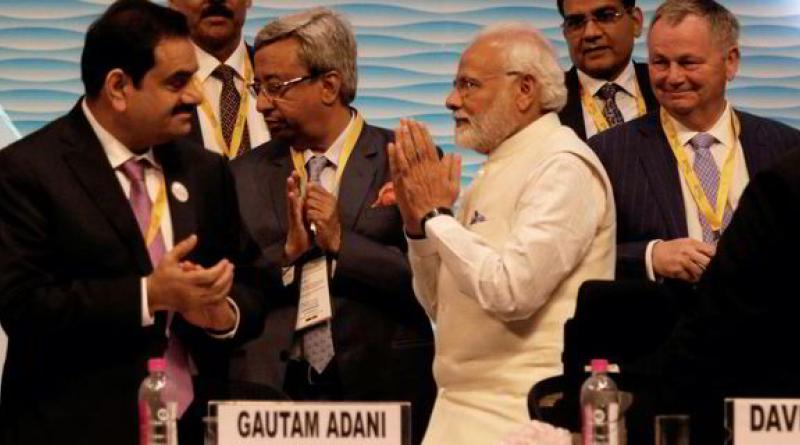Adani risks 'massive debt trap' in India's green power and hydrogen race of the tycoons: study

Billionaire-owned conglomerate could face over-leveraging amid ambitious growth plans and competition to build market share with fellow giant Reliance, says financial research group
The race between two Indian billionaire-owned conglomerates pursuing massive green ambitions in renewables and hydrogen “could lead to imprudent financial decisions”, credit research specialist CreditSights warned as it claimed one of them – Gautam Adani’s Adani Group – risks “a debt spiral”.
Adani has over the last two years set out Adani Group’s stall to be a leader of India’s – and the world’s – energy transition, with plans to amass a 45GW renewable energy portfolio by 2030 and produce the world’s cheapest green H2.
Adani’s green expansion plans have run in parallel with those of fellow Indian billionaire Mukesh Ambani’s Reliance Industries, which has made its own series of multi-billion-dollar forays into the energy transition.
“As the two mega-conglomerates in the Indian corporate sector compete for market share in a few new economy businesses… it could lead to some imprudent financial decisions from both sides, such as higher capex spends, aggressive bidding, and overleveraging,” CreditSights said in a new report on Adani Group.
Of the two, “Adani has elevated leverage and poor interest cover and cash outflows across virtually all its entities, and is at greater financial risk”, claimed CreditSights, part of the same group as global ratings giant Fitch.
“In a worst-case scenario, ambitious debt-funded growth plans could eventually spiral into a massive debt trap, and possibly culminate in a distressed situation or default of one or more [Adani] group companies, which may impact the broad Indian markets and economy.”
Gautam Adani – who made a fortune in commodities trading in the late 1980s – in July passed Bill Gates to become the world’s fourth-richest person with a $113bn fortune and had already in February outstripped Ambani as Asia’s richest, according to Forbes. CreditSights said that is “paper wealth, and largely tied to the value of his holdings in the Adani Group stocks”, noting that it is difficult to gauge the family’s ability to inject their own funds in a scenario where any of the group companies require equity injections”.
Two Adani group companies have emerged as would-be leaders in Indian power and green hydrogen.
Adani Green Energy has set out plans to boost its renewables capacity fivefold to 25GW by 2025 – spending 100-200bn rupees ($1.25-2.5bn) annually over the next two years – with longer-term ambitions for a 45GW green power base by 2030.
Adani Green in 2021 swooped for the 5GW portfolio of Japanese-owned SB Energy in a $3.5bn deal said at the time to be the largest so far in Indian renewables.
Adani Enterprises, the group’s incubator division, has set out a similarly ambitious agenda in hydrogen, with plans to spend more than $50bn in the sector over 10 years and build capacity to produce a million tonnes of green H2 annually by 2030. Adani Enterprises will devote 84% of its total Capex to hydrogen in the last five years of the decade, according to CreditSights.
The green power and hydrogen ventures are just a few of an array of sectors targeted by Adani Group for steep growth, including massive investments in fossil fuel infrastructure, airports and ports.
CreditSights said “these ventures are also extremely capital intensive, which would likely increase the need for additional debt incurrence to fund the capex needs and thus leading to sustained high leverage for the group”.
While it acknowledged equity investments by French oil supermajor TotalEnergies in Adani Green and Adani Enterprises of 20% and 25% respectively, the research group claimed “these pale in comparison to the total capex needs of the concerned entity”.
On the upside, CreditSights noted Adani Group’s “sound banking relationships”, track record of delivering stable companies and strong alignment with the massive green agenda of the Indian government.
“Gautam Adani also enjoys healthy relations with the ruling Modi administration. Adani and Indian Prime Minister Narendra Modi know each other well, going back to the latter’s days as the Chief Minister of Gujarat state. At the minimum, this ensures no impediments to the Adani Group growth agenda,” said CreditSights, which said it overall remains “cautiously watchful” of the conglomerate’s growth plans.
Adani Group has not so far responded to a request for comment on the CreditSights report.


